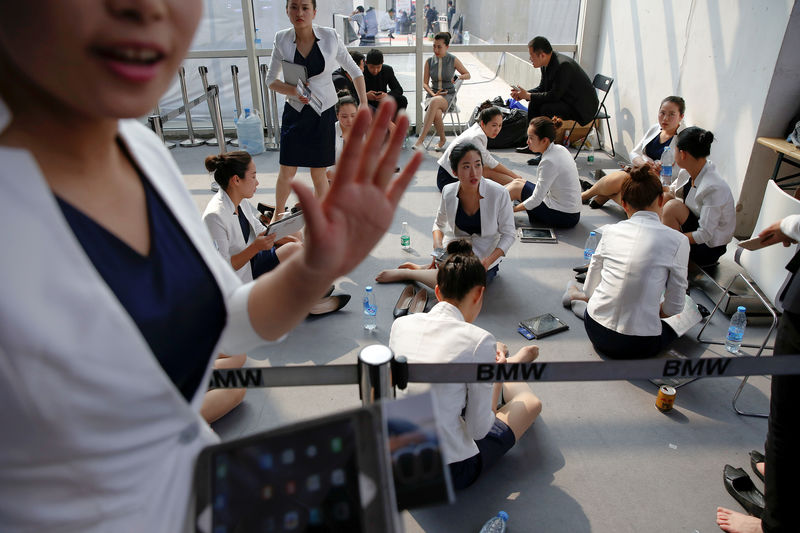BEIJING, (Reuters) - Activity in China's services sector picked up to a 14-month high in March as demand improved at home and abroad, a private business survey showed on Wednesday, adding to signs that government stimulus policies are gradually kicking in.
But analysts cautioned it is too early to tell if China's economy has turned the corner, with many businesses cautious on whether there will be much improvement in a year's time.
The Caixin/Markit services purchasing managers' index (PMI) rose to 54.4, the highest since January 2018 and up from February's 51.1, a fourth-month low. The 50-mark separates growth from contraction.
Survey respondents said activity was being buoyed by stronger demand, new state policies and improved access to financing.
The findings were largely in line with those of an official gauge on the non-manufacturing sector released on Sunday, which showed services activity picked up in March as new orders rose more quickly. Construction, in particular, showed strength, likely reflecting government efforts to fast-track more infrastructure projects to kindle domestic demand.
Also, both official and private manufacturing surveys unexpectedly returned to growth in March, fueling hopes that China's downturn may be bottoming out.
"In general, China's economic fundamentals recovered in March, with domestic and external demand as well as manufacturing employment improving," Zhengsheng Zhong, Director of Macroeconomic Analysis at CEBM Group, said in a commentary released alongside the Caixin data.
"However, business sentiment has remained cautious, and inflation was subdued ... More evidence is needed to determine whether the Chinese economy has stabilized," Zhang said.
China has been banking on the services sector to cushion the slowdown in manufacturing, which is being hit by rising labor costs and the year-long U.S.-China trade war. But consumers have in recent months turned more cautious about spending on big-ticket items like cars and appliances as income growth slows amid the broader economic slowdown.
The private services survey showed total orders rose to 14-month high, with solid growth in export sales for Chinese service providers.
But growth in operating costs continued to outpace prices charged by services firms, indicating persistent pressure on their profit margin.
Business confidence edged up, but remained weaker than longer-term trends. Only 18 percent of respondents anticipated business activity will be higher in a year.
Perhaps reflecting that lingering caution, job creation in the services sector also eased to only a marginal pace.
Caixin's composite manufacturing and services PMI, also released on Wednesday, picked up to a nine-month high of 52.9 in March from 50.7 in February.
Since late last year, Bejing has implemented a flurry of tax and fee cuts to reduce the cost burdens on individuals and companies, while the central bank has guided borrowing costs lower.
"The current economic slowdown in China is mainly due to insufficient domestic demand," Liu Xueliang, Associate Research Fellow at state think tank Chinese Academy of Social Sciences, was quoted as saying on Tuesday by the 21st Centry Business Herald.
More policy support measures are expected in coming months,

though some relief for businesses might be in the offing if Beijing and Washington reach a deal to end their bruising trade war. Both sides have reported progress in the latest round of talks, although U.S. President Donald Trump cautioned that he would not accept anything less than a "great deal".